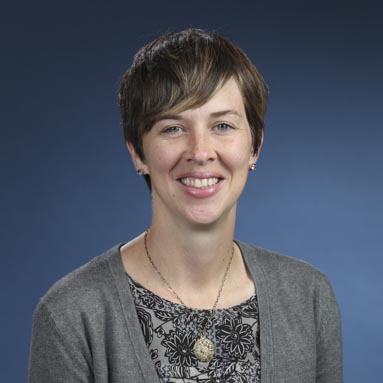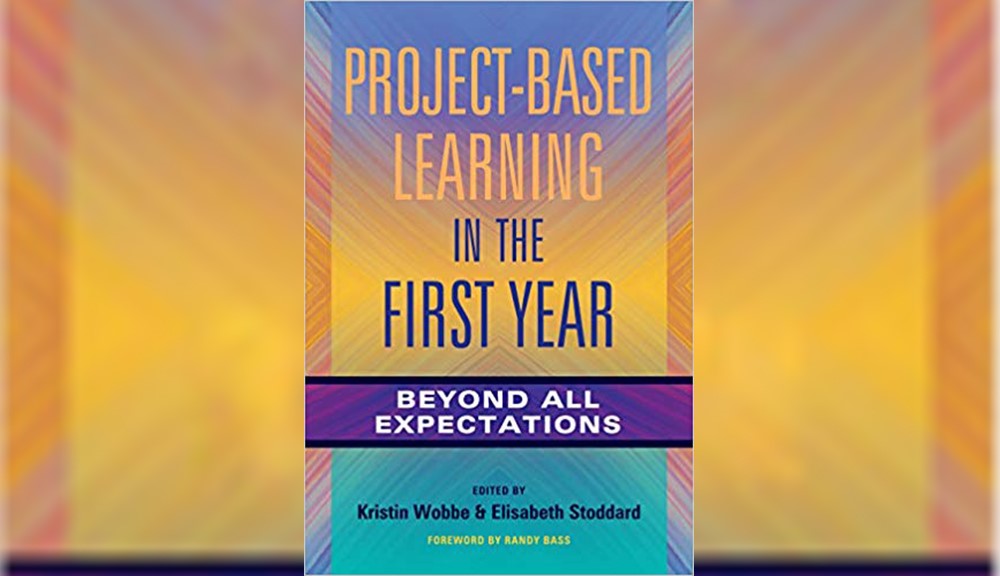“You know so much about that, you should write a book!”
It’s a common enough phrase, and one associate dean of undergraduate studies and associate professor of chemistry and biochemistry Kris Wobbe and assistant teaching professor of environmental and sustainability studies Lisa Stoddard took to heart with their co-edited book, Project-Based Learning in the First Year.
As the global leader in project-based learning for nearly 50 years, WPI has already made great strides in sharing knowledge with other colleges and universities through the annual Institute on Project-Based Learning, and a book provides a way for that knowledge to be shared on an even greater scale.
For the past 13 years, WPI faculty members have been delivering Great Problems Seminars (GPS), a two-term course that introduces first-year students to university-level research and project-based learning at WPI, honing approaches and assignments to help first-year students learn through projects. In one of their summer workshops, the group realized they’d accumulated enough useful knowledge to fill a book. Then when a course Stoddard and Wobbe were planning to teach ended up being changed, they decided to use the time to write a book proposal. The proposal was accepted, and a dozen WPI faculty and staff members began writing chapters for the book.
Much of what is included in the book was developed by what attendees most requested from past presentations and conferences by GPS faculty: assignments, rubrics, sample curricula, among other issues. Chapters also feature examples of project-based learning that readers can use as a framework and customize for use in their own campus communities or classrooms.
On-the-ground experiences
Implementing an entirely new learning structure is never easy, which is why readers can expect not only success stories, but tips for roadblocks and troubleshooting. Stoddard describes it as “practical tools and advice so people can see more than just principles of engagement, but really what project-based learning looks like on the ground, and how exactly to begin or further this work in your classroom.”
The Great Problems Seminar has involved voices from across the campus, which is why nearly every chapter in the book is co-written by core faculty and staff. In addition to their editorial duties, Stoddard contributed to three chapters, Wobbe to two. Staff members play an integral role in project-based learning at WPI, and were critical to the book, specifically a librarian and the director of the Student Development and Counseling Center.
“The nice thing about the book, which also happens in the GPS classroom, is that we have frameworks and principles we operate around, but each pair of faculty who teach together—or write together, in this case—bring their own perspectives, interests, and passions, so it’s rolled out in the same way we teach together.” -Lisa Stoddard
“The nice thing about the book, which also happens in the GPS classroom, is that we have frameworks and principles we operate around, but each pair of faculty who teach together—or write together, in this case—bring their own perspectives, interests, and passions, so it’s rolled out in the same way we teach together,” Stoddard explains.
“It’s an example of us walking the walk,” says Wobbe, who’s sitting at her desk with a coffee mug that reads, fittingly enough, Ask me about my book. “Each chapter has a ‘why’ and a ‘how’—why these methods should be implemented in the classroom, and practical examples on how to do so.”
Readers aren’t the only ones expected to learn from the book; in reviewing each chapter, both Wobbe and Stoddard found new methods on how to approach different lessons in their own classrooms through the work of their peers. They also learn from other universities as they share different methods of project-based learning.
“I often end up learning something that I then go back and change in my classes and projects, so I’m able to go back and grow from there,” Stoddard explains. “We know that we benefit so much from one another, and we hope others will be able to pick up the book and ultimately achieve the same results.”
- By Allison Racicot






